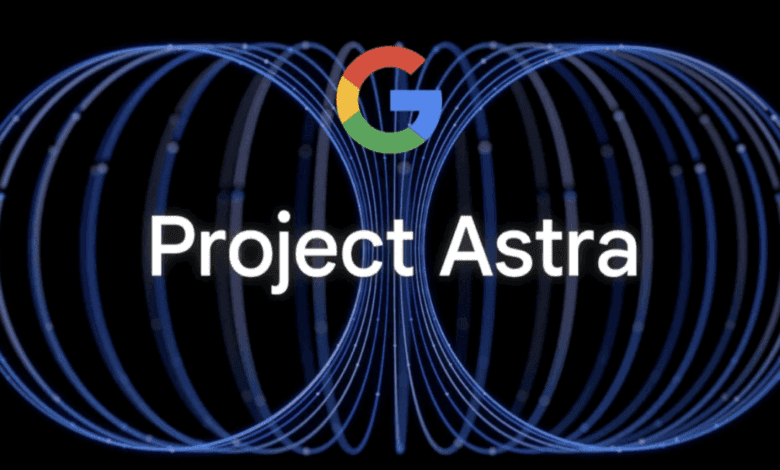Google’s Project Astra: Your New AI Sidekick?
Project Astra by Google DeepMind: A Glimpse into the Future of Personal AI

Envision a world where your AI assistant doesn’t just respond to your commands but also sees, hears, and understands the world around you, transforming everyday life into an interactive, intuitive experience. Google’s Project Astra from Google DeepMind is pioneering this vision, aiming to create a universal AI assistant that’s proactive, personal, and profoundly helpful. Here’s how this innovative project could soon be a part of our daily lives, with real-life examples and applications that showcase its potential:
Home Life
- Lost Items: You’ve misplaced your glasses again. Instead of tearing apart your home, you simply ask Astra, “Where did I leave my glasses?” Astra, having access to your last few minutes of conversation or visual data from your smart glasses or phone, might say, “You left them by the coffee machine.” This isn’t just about finding objects; it’s about saving time and reducing stress.
- Cooking Assistance: Imagine you’re cooking dinner, and you’re unsure if you’ve added enough salt to your soup. With Astra, you could point your camera at the pot, and it might analyze the dish, suggesting, “You could use a pinch more salt.” Or, if you’re trying out a new recipe, Astra could read the recipe steps out loud while you have your hands full, or even adjust the cooking time based on how the dish looks.
Daily Commute and Navigation
- Exploring New Cities: Traveling to a city where you don’t speak the language? Astra could translate signs, menus, or even live conversations around you, making you feel less like a tourist and more like a local.
- Traffic and Route Optimization: If you’re driving and encounter an unexpected road closure, Astra could quickly process the visuals from your dashcam or the city’s traffic data, suggesting alternate routes in real-time, potentially even before your navigation app updates.
Work and Education
- Coding and Technical Support: Developers could point their camera at a piece of code they’re working on, and Astra might explain what the code does, suggest optimizations, or help debug issues. For students or professionals in technical fields, this means instant, contextual help without leaving the task at hand.
- Interactive Learning: In educational settings, Astra could recognize diagrams or charts in textbooks, providing interactive explanations or quizzes based on what it sees. Imagine pointing at a complex diagram in your biology book, and Astra explains the process of photosynthesis in an engaging, visual way.
Accessibility
- Assistance for the Visually Impaired: For individuals with visual impairments, Astra could describe environments, identify obstacles, read signs, or even assist in shopping by identifying products and reading labels, all through smart glasses or a connected device.
- Hearing Impairments: Astra could translate spoken words into text in real-time, making conversations in noisy environments or lectures much more accessible.
Entertainment and Creativity
- Art and Culture: Visiting a museum? Astra could enrich your experience by not only identifying artworks but also providing historical context, artist bios, or even suggesting similar pieces in other museums based on your visual interests.
- Creative Projects: For artists or designers, Astra could offer feedback on color schemes, composition, or suggest enhancements based on what it sees in your work, merging technology with creativity.
Social Interaction
- Language Barriers: In social settings, Astra could facilitate conversations by translating speech in real-time, allowing for deeper connections without language barriers.
- Memory Aids: At a party, if someone mentions a book or a movie, Astra could remind you later in the evening, “Remember, John recommended that sci-fi novel. Here’s where you can find it online.”
Expanding Horizons
- Real-Time Assistance in Emergencies: Imagine if you’re in a situation where you need immediate help, like a medical emergency. Astra could not only call emergency services but also provide first responders with real-time visual information about your condition or location, potentially speeding up response times.
- Environmental Awareness: While walking in nature, Astra could identify plants, animals, or even geological features, offering educational insights or warnings about potentially harmful species, enhancing your interaction with the natural world.
- Personalized Shopping: In stores, Astra could help by scanning items you’re considering buying, offering real-time price comparisons, reviews, or even suggesting items that match your style based on past purchases or preferences.
Looking Forward
While Project Astra is still in its developmental stages, these examples illustrate not just the potential applications but how it could seamlessly integrate into our lives, making technology feel more like an extension of our capabilities rather than just a tool. Google DeepMind’s work on Astra suggests a future where AI is not just smart but also deeply intuitive and engaging, transforming everyday tasks into moments of discovery and efficiency. From helping with mundane tasks to enriching cultural experiences, Astra could be the sidekick we never knew we needed.